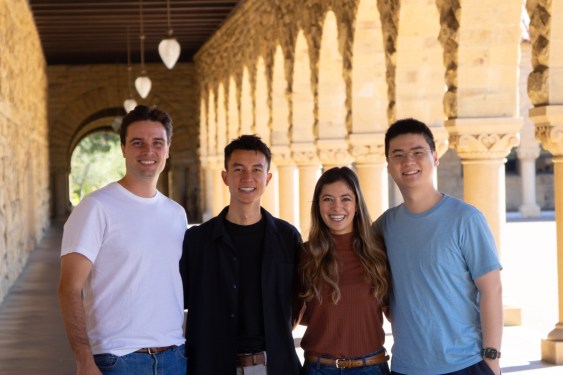California-based startup Subtle Computing is tackling the problem of capturing people’s voices in noisy environments with its own voice isolation models. This technology could benefit a wide range of voice-based AI products and services.
Consumer apps using voice AI are seeing tremendous growth. AI meeting notetakers like Granola, Fireflies, Fathom, and Read AI have received significant user and investor attention. Established companies like OpenAI, ClickUp, and Notion have also integrated voice transcription solutions into their platforms. App makers such as Wispr Flow and Willow are actively working on voice dictation technology. Furthermore, hardware companies like Plaud and Sandbar are creating dedicated devices to transcribe voice and use AI for insight generation and interaction.
A primary challenge for all these companies is accurately capturing user voices in varied environments, such as loud cafes or busy offices. To solve this, Subtle Computing developed an end-to-end voice isolation model that can understand speech even in noisy conditions. The startup’s approach involves training specific models to suit the unique acoustics of a particular device and to adapt to an individual user’s voice, rather than using one generic model for all devices. This personalized method results in an order of magnitude better performance than generic solutions.
The company was founded by Tyler Chen, David Harrison, Savannah Cofer, and Jackie Yang, who met at Stanford University. Chen, Harrison, and Yang were pursuing PhDs while Cofer was completing an MBA. They came together in Steve Blank’s Lean Launchpad course, where they worked on alternative computing interfaces and began building Subtle Computing.
The founders envision a future where we talk with our devices regularly. However, a key question is how well our devices can understand us in all the environments where we work, from a loud coffee shop to a shared office where privacy is a concern. Voice technology does not work that reliably today.
The startup’s model for voice isolation is small, just a few megabytes in size, and has a latency of only 100ms, allowing it to run directly on some devices. The company can also run a different model to transcribe the isolated voice into text. Thanks to the isolation model, the transcription model can understand users better, leading to more accurate transcripts.
Subtle Computing announced that Qualcomm has selected the startup as a member of its voice and music extension program. This means the startup’s technology will be compatible with Qualcomm’s chips and available on devices produced by original equipment manufacturers.
The company has raised six million dollars in seed funding led by Entrada Ventures. The round included participation from Amplify Partners, Abstract Ventures, and angel investors, including founders like Twitter’s Biz Stone, Pinterest’s Evan Sharp, and Perplexity’s Johnny Ho.
Karen Roter Davis, Managing Partner at Entrada Ventures, noted that voice AI is a crowded field, and while interactions through this medium are increasing, the overall voice experience remains poor. She believes the startup’s focus on voice isolation brings a fresh perspective to the market. She stated that advances in compute power and machine learning provide opportunities for voice interface breakthroughs, and Subtle Computing is meeting people where they are with reliable, easy, and fun voice experiences that work in both extreme noise and extreme quiet.
The company has also partnered with an unnamed consumer hardware brand and an automotive brand to deploy its solutions. However, Subtle Computing does not want to be just a model supplier to other companies. The startup plans to announce its own consumer product that spans both hardware and software next year, though it has not yet offered specific details.

